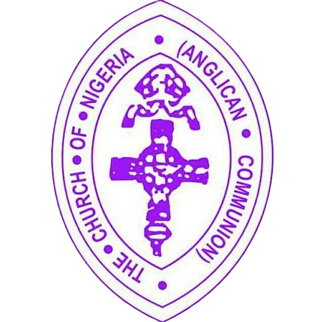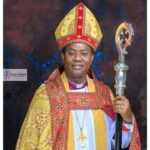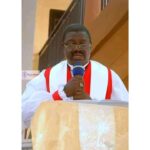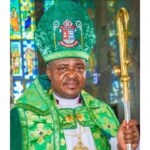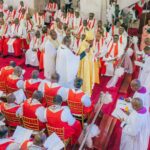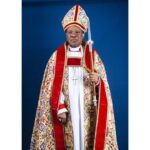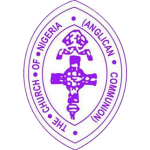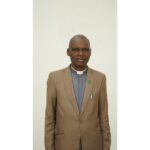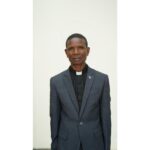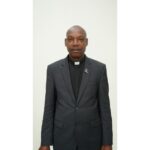- NGOZI ADIGHIBE
- December 14, 2018
- 0 Comments

The Archbishop of Canterbury, Justin Welby, has called on the UK government to establish a Joint reconciliation Unit (JRU) to work in conflict zones around the globe. The archbishop made his call during a debate in the House of Lords – the upper house of the country’s Parliament – in a debate on reconciliation in which he led. He said that the government’s Conflict, Stability and Security Fund and Stabilisation Unit were “steps in the right direction” but he added that “what is needed is a joined-up approach to reconciliation straddling humanitarian, economic, social, ethnic, cultural, political, spiritual and religious factors in which different departments of government work together”.
He said that the JRU “must work hand in glove with NGOs, with civil society and faith-based organisations, including churches, outside Government, neither ignoring them nor co-opting them.”
The archbishop is one of 26 Church of England bishops with seats in the House of Lords and he traditionally leads a debate on the subject of his choosing in the run-up to the Christmas recess. He began the speech by saying: “At the very heart of the doctrines of the Christian faith, of Christian practice, should be and is the doctrine of reconciliation of humanity to God through Jesus Christ.
“And as a result, the Church has historically, at its best, been involved in reconciliation. And it has been the most significant part of my own experience of ministry. We live with the expectation, with the hope, of life transformed. We live in a world where hospitality to the stranger, peace without violence and even hope of life everlasting is promised within the terms of our faith and of other of the great world faiths.
“We also live in a very human world, a world that is often messy and never perfect, and yet I hold firm to the belief that we can create a society where mutual flourishing is possible, disagreeing well is central, and respect for difference is paramount. We can anticipate a world where, as Psalm 85 tells us, ‘mercy and faithfulness will meet; righteousness and peace will kiss each other’”.
He acknowledged that references to Christian foundations might turn some listeners off, but he said that “the concepts are central to reconciliation – words like forgiveness, peace and grace – not only in the Christian faith but in other world faiths and in many of the philosophies around humanism. Their application can benefit all alike. It is worth noting too that when I speak from a faith position that in a debate on foreign policy, defence and development, 85 per cent of the world’s population ascribe to some faith and that is a figure that is rising, not falling. Whether or not we believe and ascribe to a particular faith, it is nevertheless something that sets the worldview for the overwhelming majority of our fellow human beings.”
He told peers of examples of conflict resolution throughout the Anglican Communion, including of a colleague who is now a bishop in eastern Democratic Republic of Congo, who remained in situ when all other NGOs had left, “to bring refugees through the battle lines to safety, before, during and after conflict.”
He also spoke of the work of Archbishop Justin Badi Arama, the Anglican Primate of South Sudan, who “facilitated dialogue between leaders of government and opposition groups at international peace talks that were said to make more progress in two days than international efforts over the previous four years.”
He said: “the Archbishop facilitated the leaders – many of whom had not sat at the same table since the start of the conflict – to go further than expressing their opinions and party positions to the deep, heartfelt pain and injustice they had experienced during an ongoing conflict that had sent two million people into exile and over 100,000 to their deaths.
“The South Sudanese have an expression for such conversation, they call it ‘vomiting truth’ and its palpable effect was noted by all sides. I know this area a very little, having visited several times in the last four years, including to a town taken and retaken, with more than 3,000 bodies left unburied when we went there, and consecrated a mass grave with the bodies of local clergy and their families at my feet.
“There is a lot of truth to vomit. Yet the courageous archbishop has since addressed thousands of South Sudanese citizens, the President and the Leader of the Opposition at a celebration to mark the signing of a new peace agreement. He not only prayed for the leaders but called upon them to make good on their promises and turn peace on paper into peace in practice.
“Of course, the work he is doing cannot be done without governments coming in and supporting, without the willingness of the population – bottom up, middle out, top down – outsiders serving and helping. But that combination is capable of turning an area of war into an area that begins the long, painful, stony path of reconciliation.”
He continued: “The formation of a Joint Reconciliation Unit would be fundamental in making reconciliation an integral part of [Britain’s] international policy. It would save money, time and ultimately lives. . .
“I also desire to see reconciliation and healing take root in our hearts, and manifest in our actions, so that our policies at home and abroad are motivated by faith and hope rather than fear. Let our foreign, defence and international development policy reflect our commitment to understanding our enemies, recognising their pain and resolving our differences in a manner that acknowledges and embraces their humanity and diversity.
“We need to find the balance of mercy and justice, forgiveness and reparation, of the kingdom of heaven and of our world today as we move on from divided pasts into shared futures.”
He concluded with the familiar intercession from the Book of Common Prayer: “Give peace in our time, O Lord”.
More than 23 people spoke in the debate, including the Bishop of Coventry, Christopher Cocksworth, and the former President of the UK’s Methodist Conference, Lord Griffiths of Burry Port.
